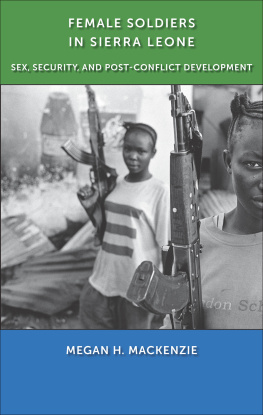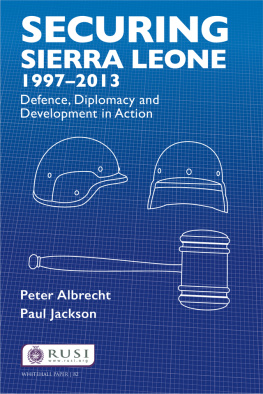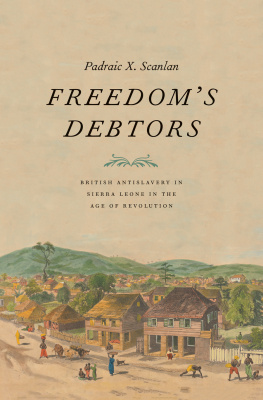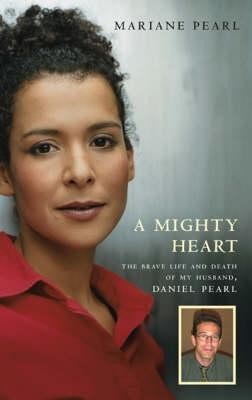University of California Press, one of the most distinguished university presses in the United States, enriches lives around the world by advancing scholarship in the humanities, social sciences, and natural sciences. Its activities are supported by the UC Press Foundation and by philanthropic contributions from individuals and institutions. For more information, visit www.ucpress.edu.
University of California Press
Oakland, California
2018 by Mariane C. Ferme
Library of Congress Cataloging-in-Publication Data
Names: Ferme, Mariane C. (Mariane Conchita), 1959 author.
Title: Out of war : violence, trauma, and the political imagination in Sierra Leone / Mariane C. Ferme.
Description: Oakland, California : University of California Press, [2018] | Includes bibliographical references and index. |
Identifiers: LCCN 2017041374 (print) | LCCN 2017043315 (ebook) | ISBN 9780520967526 (ebook) | ISBN 9780520294370 (unjacketed cloth : alk. paper) ISBN 9780520294387 (pbk. : alk. paper)
Subjects: LCSH : Sierra LeoneHistoryCivil War, 19912002. | WarPsychological aspects.
Classification: LCC DT 516.826 (ebook) | LCC DT 516.826 .F47 2018 (print) | DDC 966.4/05dc23
LC record available at https://lccn.loc.gov/2017041374
Manufactured in the United States of America
26 25 24 23 22 21 20 19 18
10 9 8 7 6 5 4 3 2 1
Ai miei genitori, Roberto Ferme e Patricia Cicogna Mozzoni, ed a mio figlio, Gilo Ferme-DIsanto, con riconoscenza ed amore
Contents
War Times and Forms of Life
Vision, Writing, and the Labor of Time
Red Cross as Rebel Cross and Other Figures of the Collective Imagination
The Political and Symbolic Economy of the Chieftaincy
The Territorial State Reconfigured
Debating Consent, Custom, and the Law at the Special Court for Sierra Leone
Chinese Material Traces in the Landscape
Surviving and Moving OnEphemeral Returns
Acknowledgments
In Elogio Dellimperfezione (2010), Rita Levi Montalcini, one of the great Italian women scientists of the twentieth century and winner of the 1986 Nobel Prize in medicine, inverted the line in William Butler Yeatss poem about the necessity of a choice between perfection of the life or of the work. Instead, she argued for a kind of methodological choice for imperfection in scientific research. Her masterfully narrated autobiography reads also as a window into intellectual and daily life in twentieth-century, preWorld War II northern Italy, secular Jewish Turin, and the post-Victorian gender barriers she overcame to become a world-renowned scientist. Her observation during a very long life in science, working with teams of colleagues from all over the world over the years, was that,
neither the degree of intelligence nor the capacity to execute and complete perfectly a planned project are essential to success and personal satisfaction. In both, what counts most is a total dedication and closing ones eyes in front of difficulties: this way we can face problems that others, more critical and more insightful, might not face. (Levi Montalcini 2010, 76; my translation)
Trustful collaborations, closing ones eyes in front of difficulties and making the leap, despite the conviction that something more perfect may come from deferral to others, are essential to completing any project, but especially a book that has taken many years to come to fruition, amid other smaller projects, ongoing research, teaching, and family life. I would especially like to thank the institutions that at various points along the way have supported me with funding or residencies while I worked through or presented some of this material: the Universit Catholique de Louvain-la-Neuve (Belgium), where in 2008, as the Chaire Jacques Leclerq, I first presented early versions of some of the following chapters; the Upper Guinea Coast research group at the Max Planck Institute for Social Anthropology (Halle), directed by Jacqueline Knrr; the Laboratoire dAnthropologie des Mondes Contemporains at the Universit Libre de Bruxelles, where I held the International Chair in fall 2014, especially department head Joel Noret and the much missed and prematurely deceased Mathieu Hilgers; the Development Economics Group at the Wageningen University School of Social Science (the Netherlands), particularly Erwin Bulte, Maarten Voors, and Paul Richards; and the Collge dtudes mondiales at the Fondation de la Maison des Sciences de lHomme (Paris), where my residency as Directeur dtudes associe was made possible by the support of Vinh-Kim Nguyen. Funding for field research is acknowledged from Cambridge University (2002), the University of California, Berkeley Committee on Research (2008 and 2012) and Mellon Project Grant (201416), and the National Science Foundation (grant #BCS 1430959, 201416). An Abigail Reynolds Hogden publication grant and an Institute for International Studies Manuscript miniconference grant from the University of California, Berkeley, helped advance the project toward publication.
The following students have provided research assistance or technical assistance with images: Brittany Birberick, Heather Mellquist, Rebecca Small, Brittany Young, and Adrian Van Allen. Cheryl Mei-ting Schmitz collaborated in joint research and writing on the Chinese presence in Sierra Leone, which is partially included in chapter 8. The following individuals have provided feedback on earlier iterations of various chapters: Joseph Bangura, zlem Biner, Erwin Bulte, Annie Bunting, Kamari Clarke, Lawrence Cohen, Jean Comaroff, John Comaroff, Don Donham, Sam Dubal, Monica Eppinger, Thomas Blom Hansen, Benjamin Lawrance, Louisa Lombard, Marda Mustapha, Charlie Piot, Paul Richards, Richard Roberts, and Sharika Thiranagama. A special thanks to two anonymous reviewers for the University of California Press, to Joe Hellweg, and to Luca dIsanto for close readings of the whole manuscript.
In Sierra Leone, I benefited from the hospitality or logistical support of the Boima, Dabo, Kpagoi, and Lumeh families over the years, as well as from the paramount chief and elders of Wunde Chiefdom. The staff at the Sierra Leone Red Cross Society, headed by Emmanuel Tommy, and Mr. Ibrahim Georgethen of the International Committee of the Red Crosswere welcoming and generous with their time during a research visit in 2012. At the Special Court for Sierra Leone, my work was greatly facilitated by the support and introductions provided by Saleem Vahidy, head of the Victims and Witness Protection Unit (2008 and 2012), and by Alessandro Calderone at the International Criminal Court for Rwanda (2008). More recent research on the legal empowerment NGO environment in postconflict Sierra Leone was facilitated by Vivek Maru, Sonkita Conteh, and Dan Sesay of Namati and by Simeon Koroma of Timap for Justice. Green Scenery and its director, Joseph Rahall, have been welcoming during more recent research in the country. Thanking all these people, however, does not necessarily imply that they would agree with the analysis that follows.
Part of chapter 4 appeared as Paramount Chiefs, Land, and Local-National Politics in Sierra Leone, in The Politics of Custom: Chiefship, Capital, and the State in Contemporary Africa, edited by John L. and Jean Comaroff (Chicago: University of Chicago Press, 2018); a version of chapter 5 appeared as Diasporic States, in Democratization and Human Security in Postwar Sierra Leone, edited by Marda Mustapha and Joseph J. Bangura (New York: Palgrave Macmillan, 2016); chapters 6 and 7 are revised versions of material previously published in Humanity: An International Journal of Human Rights, Humanitarianism, and Development 4, no. 1 (Spring 2013), and in Marriage by Force? Contestation over Consent and Coercion in Africa, edited by Annie Bunting, Benjamin N. Lawrance, and Richard Roberts (Athens: Ohio University Press, 2016). Parts of chapter 8 appeared in Writings on the Wall: Chinese Material Traces in an African Landscape, Journal of Material Culture 19, no. 4 (2014). Permission from these publishers and journals to reproduce these materials is gratefully acknowledged. Finally, I thank DMJ and AJ for supporting me in many practical ways during the later stages of manuscript revision.







